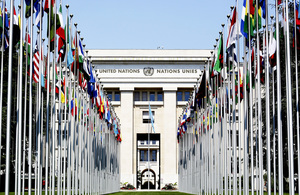New DVLA online tachograph service slashes wait times and allows instant payments
Press release
Lorry, bus, and coach drivers nationwide can now apply and pay for their tachograph cards online in minutes thanks to a new DVLA digital service.

Around 780,000 driver tachograph card holders will be able to use DVLA’s new Apply for, renew or replace a driver tachograph card service.
While drivers can still choose to fill out a paper application and send it in the post, the online service is quicker and easier for drivers. It is available 24 hours a day, 7 days a week; and drivers should have their new tachograph card issued within 24 hours from applying compared to 10 days or more when posting their paper applications.
Drivers using the online service need a valid GB photocard driving licence to apply. After applying, they will receive an email notification confirming their application, and can choose to be updated on its progress by text message.
The new online service for driver tachograph cards follows the successful launch of DVLA’s company tachograph card service in 2019, which saw company card applications move online for the first time.
DVLA Chief Executive Julie Lennard said:
We are delighted to launch our new online driver tachograph service.
This quick and easy to use service will give drivers who need tachograph cards greater flexibility around how, when and where they transact with us, and they will get their new card back even quicker.
The driver digital tachograph card online application service can be accessed via GOV.UK
Notes to editors:
The new online tachograph card services are the first DVLA digital services to move fully onto DVLA’s new secure cloud-based system. This paves the way for enhancements that will allow greater flexibility in how future services are delivered and supported, giving customers more choice in how and when they deal with DVLA.
Published 22 June 2021
